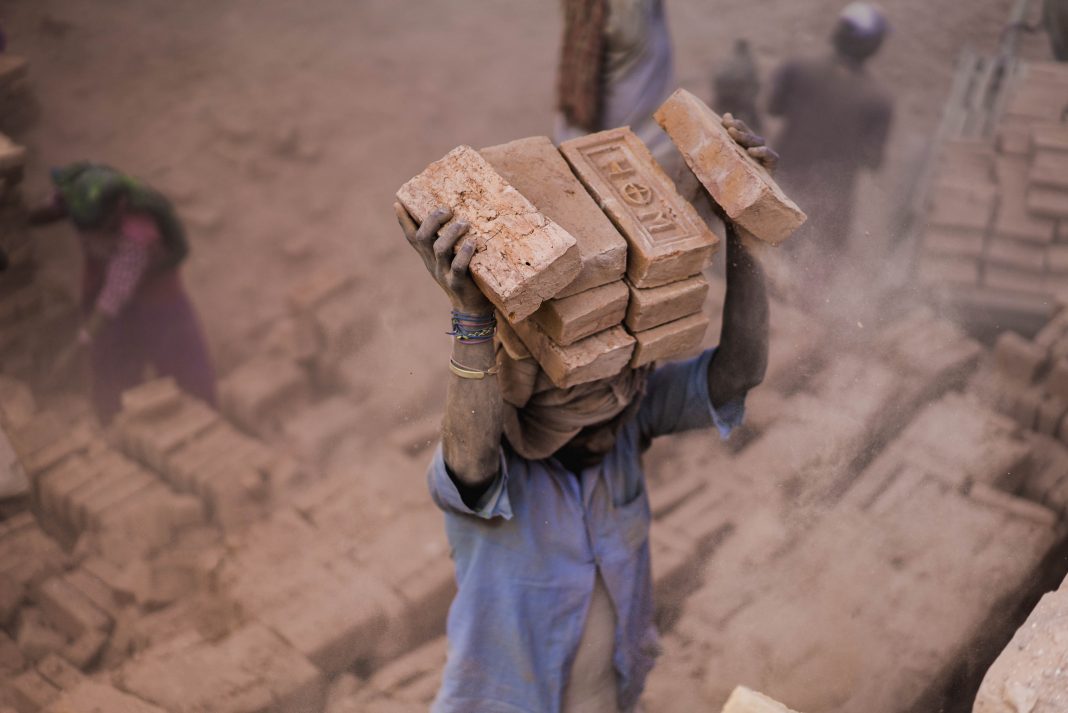Gujarat MLA and social activist Jignesh Mevani, in a joint press conference held in Ahmedabad on Saturday, made appalling revelations regarding the Mahatma Gandhi National Rural Employment Guarantee Scheme (MGNREGS). This included allegations of a multi-crore scam in a village in Banaskantha district of the state. In order to siphon off fund; bank accounts opened in the name of around 500 villagers without their knowledge for the transfer of money under the MGNREGA scheme.
Full Disclosure
“This scam in Balundra has been going on for the last eight to nine years. Some government officials and others swindled over Rs 9 crore to 10 crores by showing villagers as the beneficiaries.”
The independent MLA alleged
The modus operandi of the fraudsters was that they asked villagers to give their signature or thumb impressions claiming that they would get them the benefit of different government schemes. Then they opened the bank accounts in the villagers’ names, Mr. Mevani claimed. The fraudsters even carried out the allotted work under the scheme, using machinery. Since this cost a fraction of what needed to be paid to the villagers for their labor; the ‘scamsters’ successfully siphoned huge amounts under the guise of helping the villagers.
“Around 500 people never went for MGNERGS daily wage jobs in Balundra village. However, they were shown as working. Their job cards were made and bank accounts were opened in their names. Bank passbooks and ATM cards were obtained and money was siphoned off,”
Mevani said during the conference.
Also present at the conference were 16 residents of Balundra village, Amirgadh taluka in Banaskantha district. They testified that they never worked a day, while unidentified people siphoned off huge sums in their names.
MGNREGA: An Overview
Earlier called NREGA, Mahatma Gandhi National Rural Employment Guarantee Act (MGNREGA) was introduced in 2006. An Indian labour law and social security measure that aims to guarantee the ‘right to work’. The scheme provides 100 days of guaranteed work in a year to daily wagers for which they have to apply, obtain a job card, open bank accounts, and sign on muster rolls on the work-site itself.
In order to boost economic growth through inclusive development policies that reduce rural unemployment and under-employment; this legislation aims at: (i) providing guarantee of gainful employment within the vicinity of the rural people with a statutory minimum wage; and (ii) creation of durable assets and strengthening the resource base of the rural poor.
When introduced, MGNREGA was neither new nor revolutionary. It has antecedents within India and shares several features with other programmes elsewhere in the world. Nevertheless, it proved different from most of its predecessors in several key respects. Firstly, it explicitly aimed to create durable assets including drought-proofing and flood management; and aid in the empowerment of the marginalized. The programme also aimed to strengthen decentralized, participatory planning and Panchayati Raj Institutions (PRIs) for deepening democracy at the grassroots, while fostering greater transparency and accountability in governance. Secondly, in terms of transparency too, MGNREGA surpassed the programmes it replaced. Lastly, recognizing the larger contribution of MGNREGA as a focal point for organising around the rights of rural workers and its capacity for transformative politics, an issue that is particularly relevant today. It’s hard to think of any other social programme that has this potential.
Balundra’s MGNREGA Scam: Tip of the Iceberg?
According to Mevani, the scam came into light when some villagers went to seek work under the MNREGS; only to find that their names already registered under the scheme. Due to lockdown following the COVID-19 outbreak, the demand for jobs under this scheme reached its peak in the state. The reverse migration from cities to villages has more than doubled the demand for the first time.
Mevani, who represents Vadgam Assembly constituency in the district, said, “What we have found in Balundra village is just a tip of the iceberg”. While there were over 260 cases in this village alone from where the authority deleted the job cards in April and June this year on several grounds that violate the provisions of the scheme; similar scams were taking place in many other villages of Gujarat, including in his constituency Vadgam in Banaskantha district.
“There is widespread corruption across the districts in the state. We want the government to probe and file FIRs.” Stating that he could substantiate his allegations with documentary evidence, Mevani told the press that he would soon register FIR in regard with the same.
While the poor implementation of the scheme is no new reality, MGNREGA, as it was administered then and now, has several flaws that are well documented. The allegations made by Mevani reveal another scathing side of the vast scheme, that calls for profound and extensive scrutiny.

